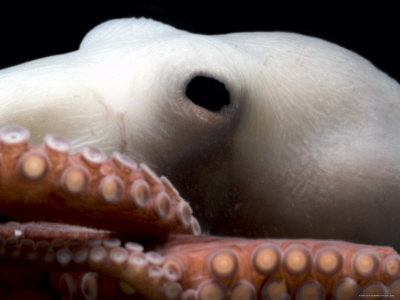Octopuses had Antarctic ancestor: marine census
 A "Census of Marine Life" aiming to explore the oceans from microbes to whales has put forward the fact that many octopuses evolved from a common ancestor that lived off Antarctica more than 30 million years ago.
A "Census of Marine Life" aiming to explore the oceans from microbes to whales has put forward the fact that many octopuses evolved from a common ancestor that lived off Antarctica more than 30 million years ago.
A very mysterious meeting place for white sharks in the eastern Pacific Ocean and algae thriving at -25 degrees Celsius (-13 Fahrenheit) in the Arctic was also discovered by researchers from 82 nations, whose 10-year study has the motive to help protect life in the seas.
Ron O'Dor, Co-senior Scientist of the census of the 2007-08 findings by up to 2,000 scientists, said, "We are approaching a picture of the oceans ... from microbes to whales."
As of now, the census, in which $650 million have been invested, would be completed in 2010. A statement said, "The census would be assessing about 230,000 known marine species, and till now it has identified, 300 likely new species, of everything from fish or corals. So far, 110 have been confirmed as new."
The findings also helped to get genetic evidence that displayed that the tentacles of the octopus family pointed to an Antarctic ancestor for many deep sea species. A modern octopus called adelieledone in Antarctica seemed the closest relative of the original.
According to a report, "Octopuses apparently spread around the world after Antarctica became covered with a continent-wide ice sheet more than 30 million years ago, a shift that helped create oxygen-rich ocean currents flowing north."
The researchers also claimed that white sharks traveled thousands of kilometers to spend six months at what they call as "White Shark Cafe" in the Pacific between Hawaii and California.
The researchers said, "During this time, both males and females make frequent, repetitive dives to depths of 300 meters. However, the purpose was unknown but may be linked to food or reproduction."